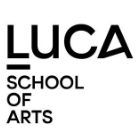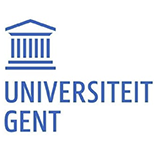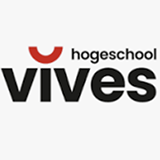Detailed introduction of Prince Leopold Institute of Tropical Medicine:
Introduction
The Prince Leopold Institute of Tropical Medicine, located in Antwerp, Belgium, is one of the world's leading institutions for tropical medicine training, research, and health organization in developing countries. It enjoys a high reputation in biomedicine, clinical and public health research, higher education, travel medicine, and care for HIV and sexually transmitted infections.
Overview
Student size: An average of 500 doctors, nurses and scientists attend advanced courses each year, and about 120 young researchers study for a doctorate degree here.
Course settings: Master's and doctoral programs are available, covering a variety of professional fields related to tropical medicine.
History and establishment time
The institute was established in Brussels in 1906 by King Leopold II. It was originally a school dedicated to the study of tropical diseases, called "School voor Tropenziekten", with the aim of training doctors and nurses working in the Congo Free State. In 1933, under the impetus of the later Leopold III, the school moved to Antwerp and was renamed Prince Leopold Institute of Tropical Medicine.
School Strength
Faculty: It has about 450 scientists and technicians engaged in research on pathogens, patients and populations.
Teaching Resources: As a reference center for AIDS research recognized by the World Health Organization and a domestic and international reference center for a series of diseases and pathogens, the institute has advanced research equipment and rich research resources. In addition, the college has established an extensive cooperation network with many institutions in Africa, South America and Asia, providing students and researchers with broad opportunities for international exchanges and cooperation.
International Reputation: The college's research and educational achievements in the field of tropical medicine have been widely recognized by the international community. Its researchers have made pioneering contributions to the research of major diseases such as AIDS and Ebola virus, and have played an important role in the development of global tropical medicine and disease prevention and control.
Nature of the institution
The college is a public institution.
Educational Philosophy
It is committed to cultivating tropical medicine professionals with solid professional knowledge, innovation ability and social responsibility, emphasizing the combination of theory and practice, focusing on the cultivation of students' practical ability in tropical disease research, prevention and treatment, and the improvement of their attention to and ability to solve medical and health problems in developing countries, so as to achieve the common goal of "health for everyone".
Key laboratories and disciplines
Key laboratories: The college has a number of cross-departmental laboratories and working groups, such as five scientific departments such as microbiology, parasitology, animal health, clinical science, and public health, covering about 20 Thematic units.
Key disciplines:
Tropical medicine: As a core discipline, it comprehensively and systematically studies disease prevention, diagnosis, treatment and control in tropical areas, covering tropical infectious diseases, parasitic diseases, tropical environmental health and other fields, providing professional support for responding to public health challenges in tropical areas.
Biomedicine: In-depth exploration of basic theories and applied technologies in the field of biomedicine, providing theoretical basis and technical support for the study of the pathogenesis of tropical diseases, innovation of diagnostic technologies and improvement of treatment methods.
Public health: Focus on public health issues in tropical areas, study the epidemiology, prevention strategies, health policies of diseases, etc., and provide scientific basis for the formulation of effective public health intervention measures and health policies to improve the overall health level of tropical areas.
Departments
The college has the following departments:
Department of Biomedical Sciences: Focuses on basic biomedical research, including microbiology, parasitology, immunology and other disciplines, explores the pathogen characteristics of tropical diseases, human immune responses, etc., and provides a theoretical basis for the diagnosis and treatment of diseases.
Department of Clinical Sciences: Focuses on the clinical diagnosis, treatment and nursing of tropical diseases, cultivates clinical doctors and nurses with professional skills to deal with tropical diseases, and improves the clinical treatment level of tropical diseases.
Department of Public Health: Focus on public health issues in tropical areas, conduct disease monitoring, epidemiological surveys, health policy formulation and other research, and provide scientific basis for public health decision-making and disease prevention and control in tropical areas.
Ranking
According to the 2024 ranking data, the college ranks 1390th in the world, 11th in Belgium, and 2nd in Antwerp. In the field of medicine, the college ranks 8th in Belgium and 818th in the world; in the field of biology, it ranks 9th in Belgium and 1119th in the world; in the field of humanities and social sciences, it ranks 11th in Belgium and 1602nd in the world.
Expenses
The tuition fee for international and domestic students is about 1371 Singapore dollars per year.
Campus
Campus environment: The college is located in the city of Antwerp. The campus has a unique architectural style and a strong historical and cultural heritage. The surrounding transportation is convenient and the living facilities are complete.
Campus facilities: The school is equipped with modern teaching facilities and scientific research laboratories, providing students and researchers with good learning and research conditions. In addition, the college also has a specialized tropical disease clinic and a ward at the Antwerp University Hospital, providing high-quality medical services to patients and providing a place for practical teaching for students.
-

Artesis Plantijn Hogeschool Antwerpen
-

LUCA School of Arts
-

Ghent University
-

Vrije Universiteit Brussel
-

Katholieke Hogeschool VIVES
-

Hogeschool West-Vlaanderen
-

Antwerp Management School
-

University of Antwerp
-

Hogeschool Gent
-

Karel de Grote-Hogeschool
-

Mesoamerican University
-

Istmo University
-

Mariano Galvez University of Guatemala
-

Regional University of Guatemala
-

Galileo University
-

Francisco Marroquín University
-

Rafael Landívar University
-

University of the Valley of Guatemala
-

University of San Carlos of Guatemala
-

Technological Institute of Tlaxcala Plateau
-

Golfo University
-

Technological University of South Sonora
-

Technological University of Huejotzingo
-

Tizimín Institute of Technology
-

Chilpancingo Institute of Technology

